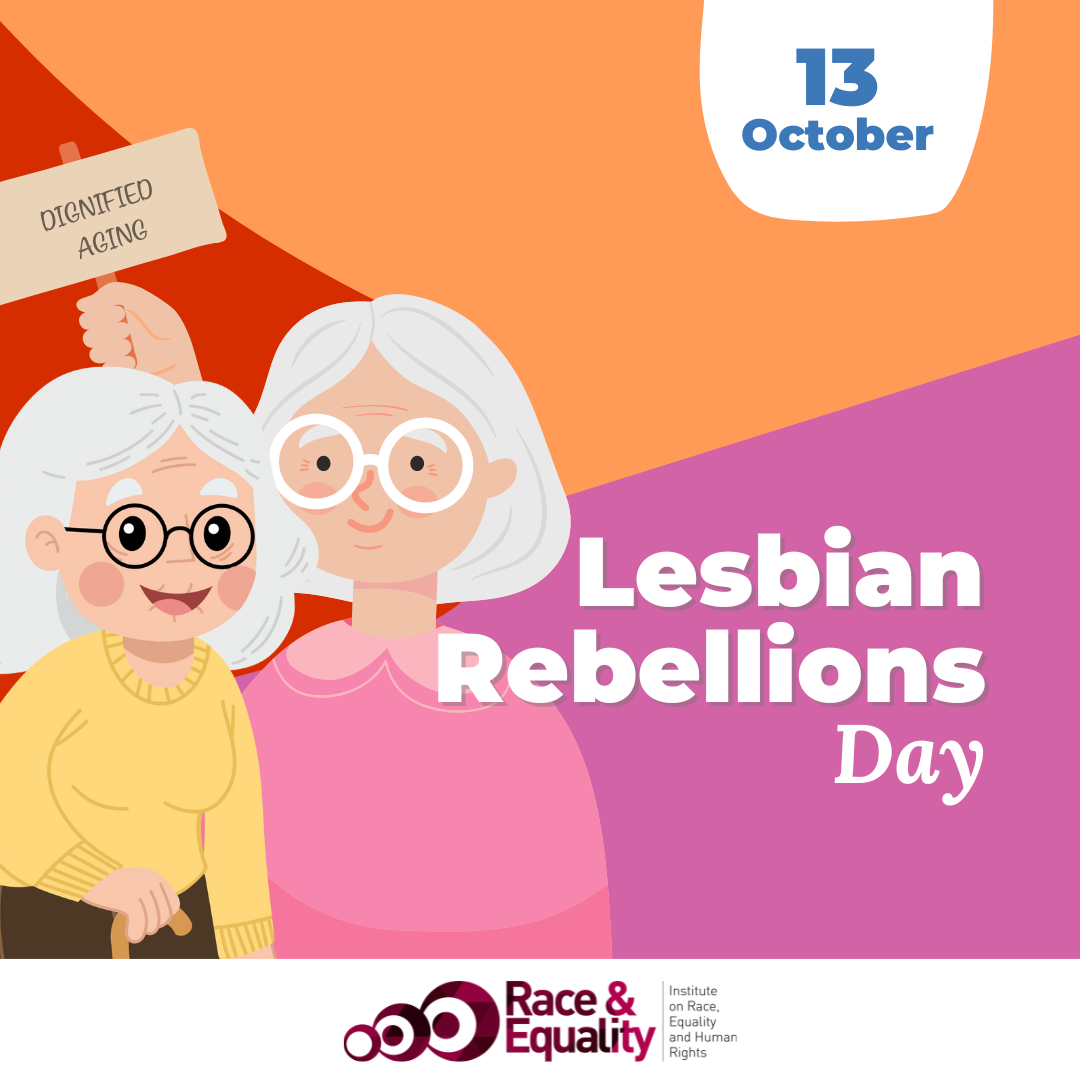Lesbian resistance in old age
What does aging mean for lesbians? Older lesbians fear growing old alone and without caregivers as a result of rejection and discrimination from their families, society, and the State.

Washington DC, October 13, 2024.- On the Day of Lesbian Feminist Rebellions in Latin America and the Caribbean, Race and Equality wishes to place special emphasis on the human rights of older lesbians and the complex challenges they face in the region. Historically, they have been left out of public policies and social support systems, increasing their vulnerability in old age.
According to the thematic report National Protection Systems and the Human Rights of Older Persons in the Americas by the Inter-American Commission on Human Rights (IACHR), many lesbians age in economic and social precariousness, without access to pensions or adequate social security, as a result of the discrimination in employment they faced throughout their lives because of their sexual orientation, gender identity, and/or gender expression.
Aging in solitude
In general, lesbians are twice as likely to age alone and four times as likely to be childless, according to a publication by SAGE and the National Resource Center on LGBT Aging, which increases vulnerability when they reach old age. “As a lesbian, leftist feminist of indigenous and brown ancestry who is aging, I face new forms of discrimination and violence. For example, the fear of not being able to have a community that accompanies me and cares for me in solidarity and reciprocally in the absence of a typical family. I’m afraid of not having a dignified old age. To pay dearly for the price of living my lesbian identity freely,” says Maria Ysabel Cedano of Lesbianas Independientes Feministas Socialistas – LIFS Peru.
In addition, SAGE also indicates that they are afraid to disclose their sexual orientation in health or residential services, which reduces the quality of care they receive and increases the risks of abuse and neglect.
Another obstacle is the issue of health benefits and pensions. Sami Arizabaleta, from Somos Identidad, points out: “The pension issue is difficult in Colombia, because the recognition of unions between women is disregarded by the State and the justice system. While the unions are legal, there are increased obstacles for those who are not in a recognized union.”
Recommendations to States
The Inter-American Convention on the Protection of the Human Rights of Older Persons (2015) was the first international treaty to recognize the specific rights of older people, underscoring the importance of dignified aging, without discrimination based on sexual orientation, gender identity, gender expression, and sex characteristics. In line with the Convention, the IACHR has emphasized that States must implement inclusive public policies that address the needs of older lesbians, protecting them from violence and guaranteeing their access to health and social security services. These include:
- Access to health services: Older lesbians require access to health services that respect their sexual identity and orientation, where health providers are adequately able to address their specific needs.
- Legal recognition of chosen families: access to rights related to medical decision-making, inheritance, and pensions is crucial to overcome the precariousness of older lesbians, who cannot count on the support of their loved ones in critical situations due to lack of legal recognition.
- Protection against violence and discrimination: States should monitor the various care services for older people where lesbians are present and establish adequate mechanisms to ensure protocols for reporting violence, abuse, or neglect and to ensure respect for their rights.
- Reducing social isolation: States should promote the emotional, mental, and physical well-being of older lesbians with support networks and safe meeting spaces that combat isolation.
States have an international obligation to guarantee the human rights of all people, including older lesbians, who in Latin America and the Caribbean face multiple forms of discrimination and vulnerability. In this sense, Race and Equality calls on States to ratify the Convention on the Rights of Older Persons and to contemplate these standards in the implementation of public policies and plans to guarantee dignified aging.

